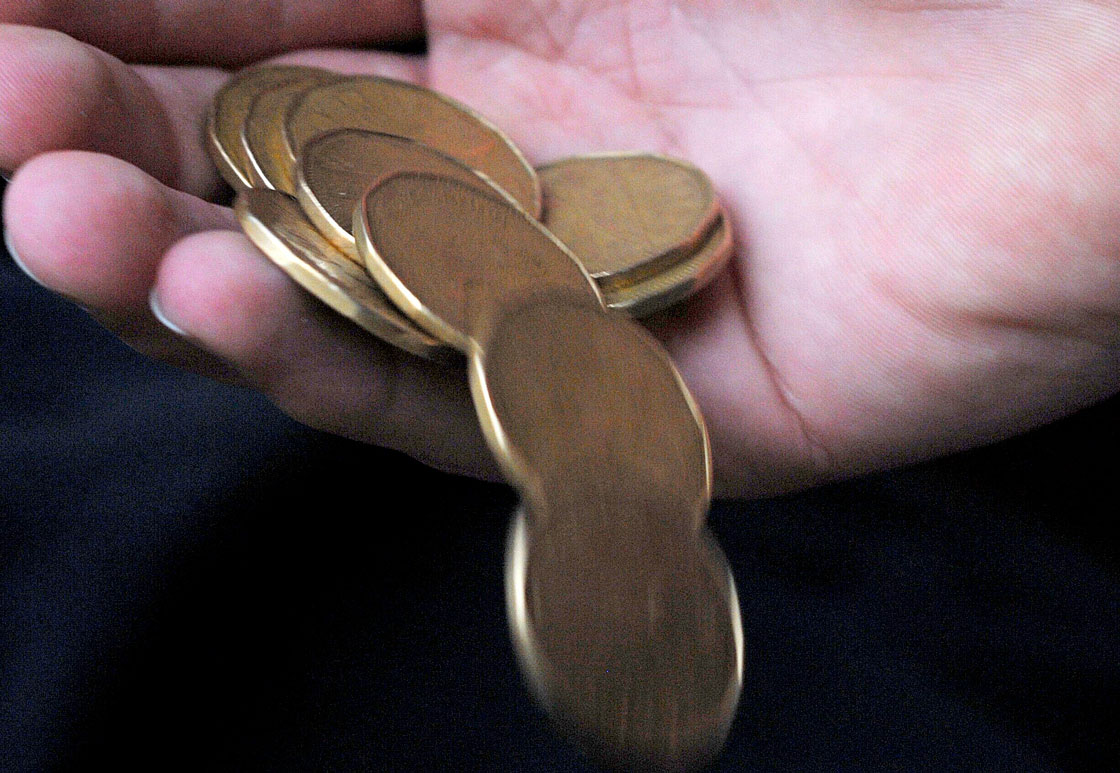If you’re among a select group, such as a big oil firm or investor with shares in multinational companies abroad, you’re likely cheering on the loonie’s fall.

For the rest of us, life is getting a little more costly.
“The benefits of a weaker loonie are likely to be small compared with its costs,” is the assessment of Philip Cross, once the top federal statistician and the latest commentator to weigh in on whether a Canadian dollar in decline will help or hurt the country.
Cross, who was chief economist at Statistics Canada before quitting in 2012, is decidedly in the latter camp.
In a new research report, Cross argues that a loonie that’s now barrelling toward 85 cents US will lift costs for households that are already heavily indebted while providing only a “limited” benefit to private businesses.
READ MORE: Don’t look now but loonie’s plunge is deepening
Consumer impact
The negative impact of the Canadian dollar’s retreat against the U.S. dollar is already being felt, he and others say.
In an integrated North American economy that prices goods trading hands across the border using US greenbacks, a gulf is opening up between what households are paying for essential products.
Gas prices are one area where consumers are feeling the pinch. Americans saw pump prices rise a modest 0.1 per cent in January compared to a year earlier, Cross’ report says. In Canada, they were up a whopping 4.6 per cent.

Get weekly money news
READ MORE: Loblaw warns lower loonie lifting grocery bills
Food is another essential product climbing in price. Cross’ report, published by the Fraser Institute on Thursday, noted that produce prices were up 4.1 per cent this year, compared to a slight dip in American produce costs.
Executives at Loblaw, the largest grocery chain operator in the country, noted on a recent conference call their produce and meat costs were rising as a result of the exchange rate, and were flowing the price increases onto customers.
And a punishingly cold winter isn’t the only factor behind spiking natural gas rates that determine the size of most Canadians’ heating bill. The spot price for natural gas has surged to a five-year high, while distribution firms like Direct Energy and Enbridge have or are planning sizable rate increases.
READ MORE: Surging natural gas prices hitting home for Canadians
Enbridge, the largest supplier of natural gas in Ontario and Eastern Canada, is seeking a 40 per cent increase in gas prices as of April 1.
“Other consumer goods where prices will rise include those that consume a significant amount of energy, such as air travel,” Cross said.
READ MORE: Air Canada, WestJet lift vacation package, airfare prices as loonie falls
‘Limited’ business upside
The higher costs for average Canadians could be considered an acceptable outcome among economy watchers if it means that businesses can begin taking advantage of the lower exchange to ramp up exports – something the Bank of Canada and others desperately want to happen.
Cross argues that’s an unlikely outcome for two reasons.
While the report says the benefits of the currency slide go “primarily” to exporters, it won’t help large swaths of companies who’ve grown accustomed to making things for a “booming” domestic economy in recent years, Cross said.
It’s unlikely these firms “will reverse these strategies unless they are convinced the exchange rate will stay low for an extended period of time.”
READ MORE: Loonie’s timely fall will help those who need it most
New export strategies will also likely require new processes and equipment, which require purchasing things like software and machines from abroad.
“Faced with higher prices, firms will trim their outlays for machinery and equipment, which ultimately will depress productivity and workers’ future wages,” the gloomy report warned.
One group of companies that stand to gain most easily in the current dollar environment: resource firms such as oil and gas companies, which sell their energy and commodities on US dollars on global markets.
Deep-pocketed investors win
Those lucky enough to own investments like shares or bonds denominated in U.S. dollars also stand to make some quick money from the loonie’s decent.
When those investments are sold and the value “repatriated” back into Canadian dollars, there will be more of them now, Cross said.
While the bigger cash position of those holdings could trickle down to the rest of the economy through higher spending and investment at home, the report isn’t convinced the contribution will be overly material.
“This is a dubious benefit for the Canadian economy,” Cross said.







Comments